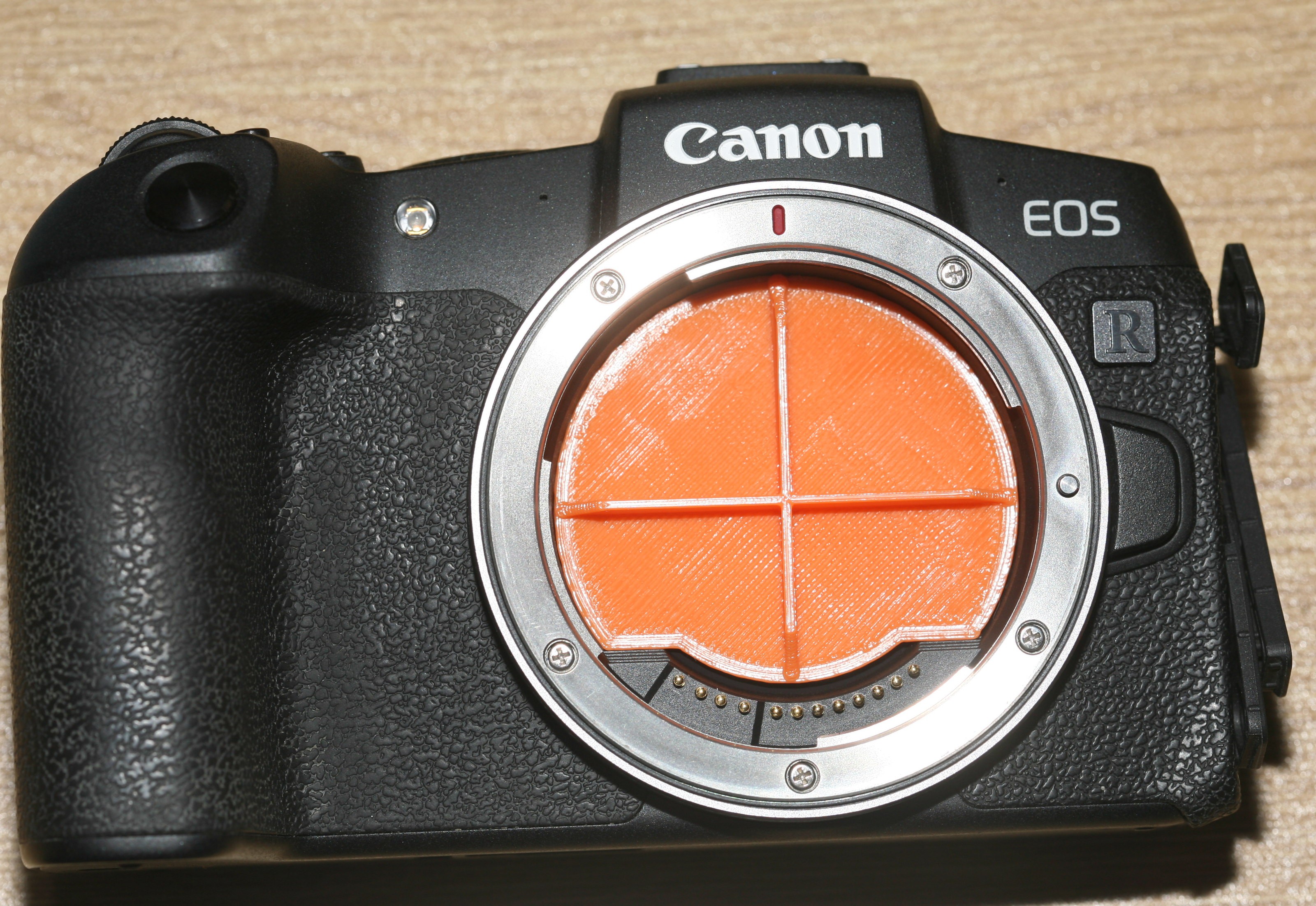
The lion kingdom made a sensor protector. It's not necessary for the teardown since all the screws come from behind. It was necessary for probing the lens signals.
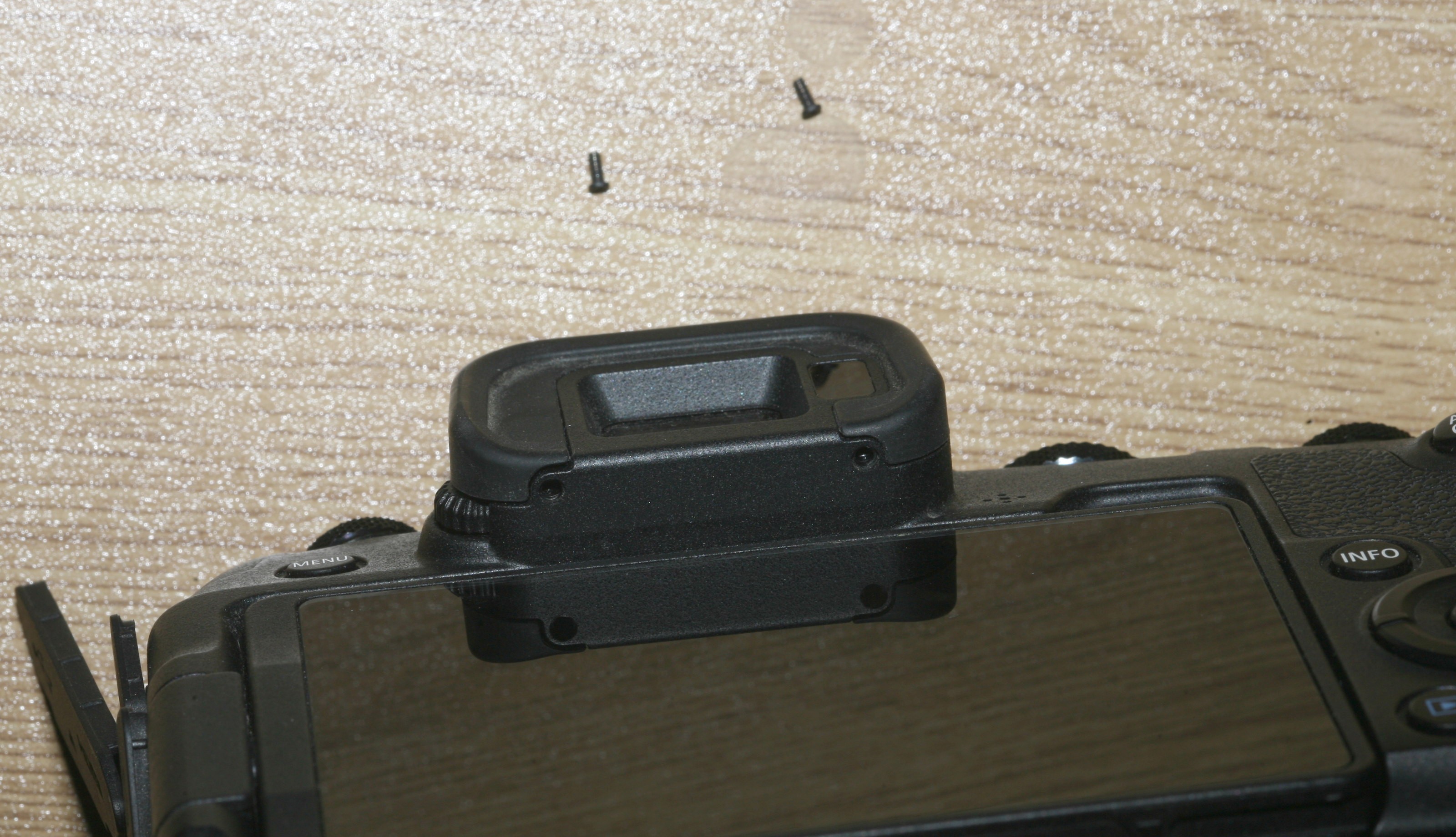 The journey begins with the eyepiece rubber
The journey begins with the eyepiece rubber
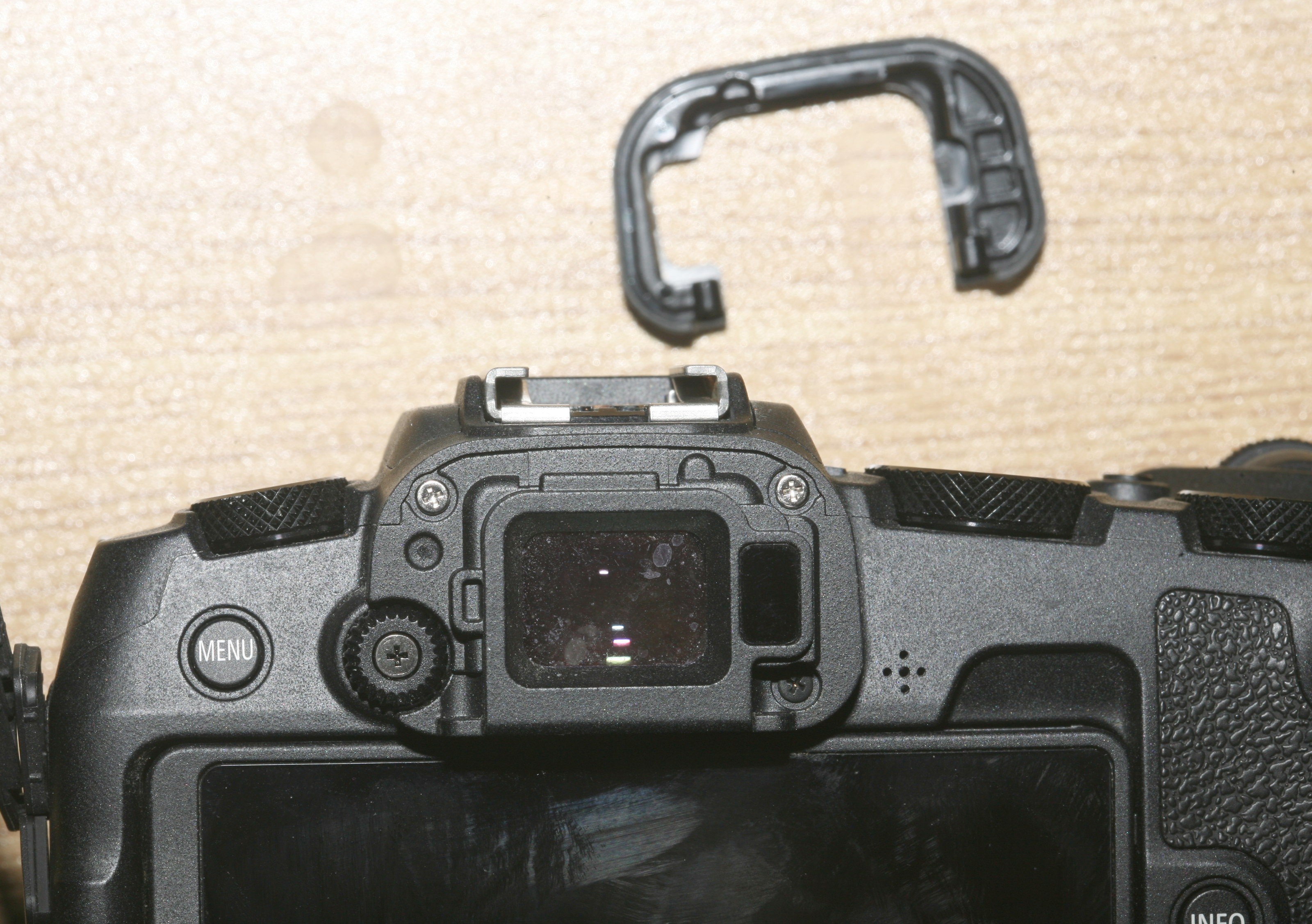
Then the viewfinder screws. The viewfinder was never used & won't be reinstalled.
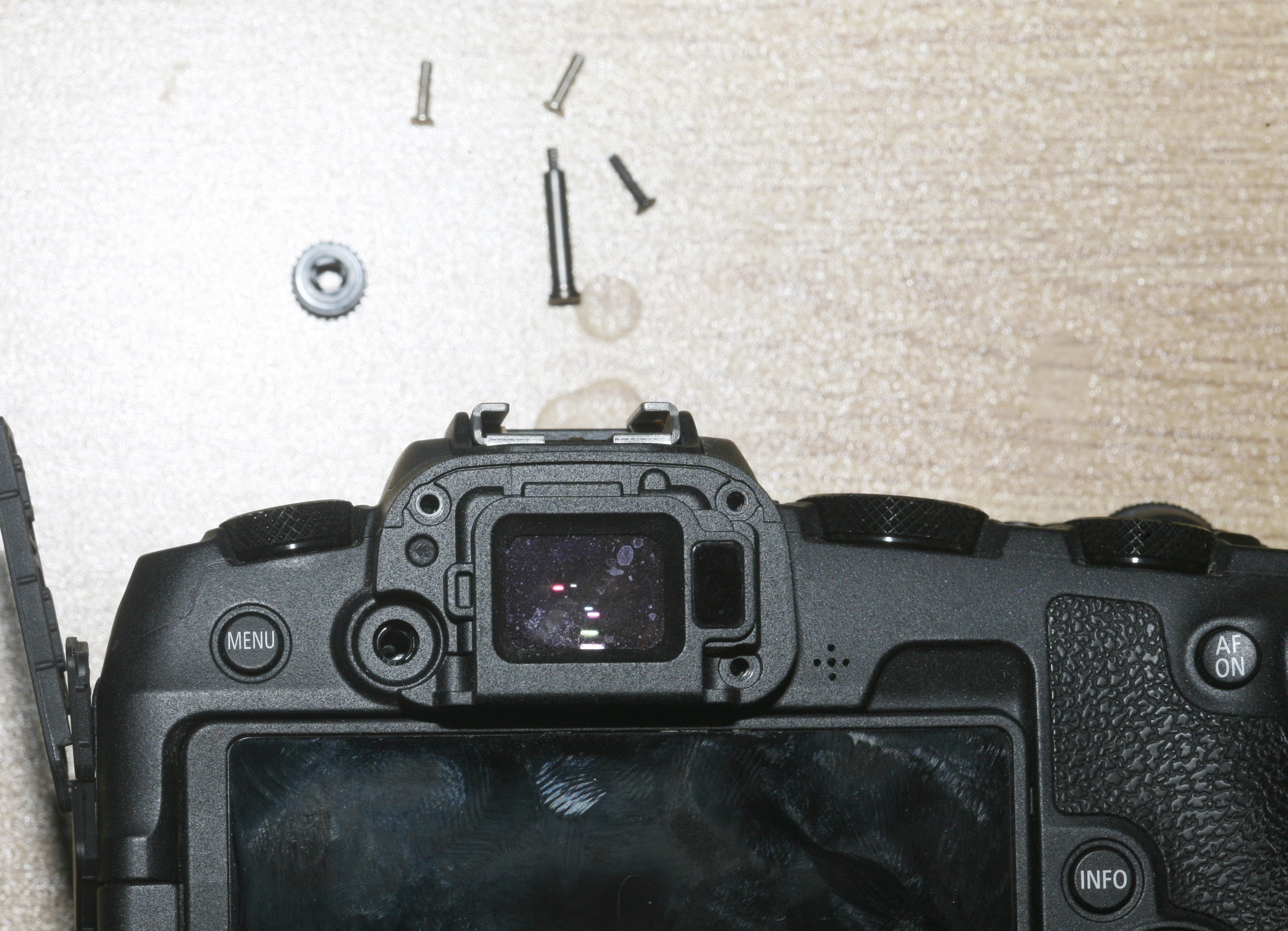
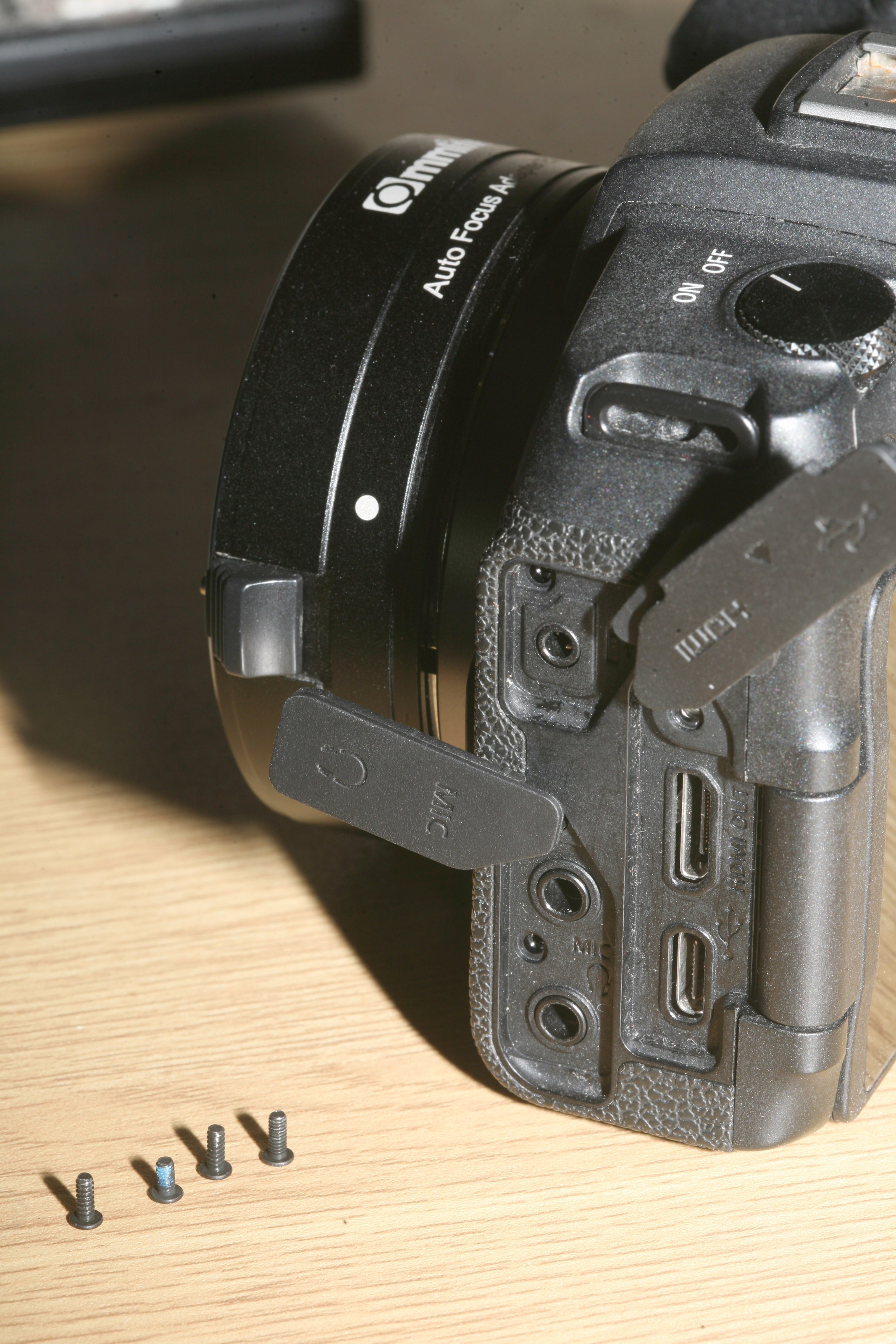
4 around the I/O ports.
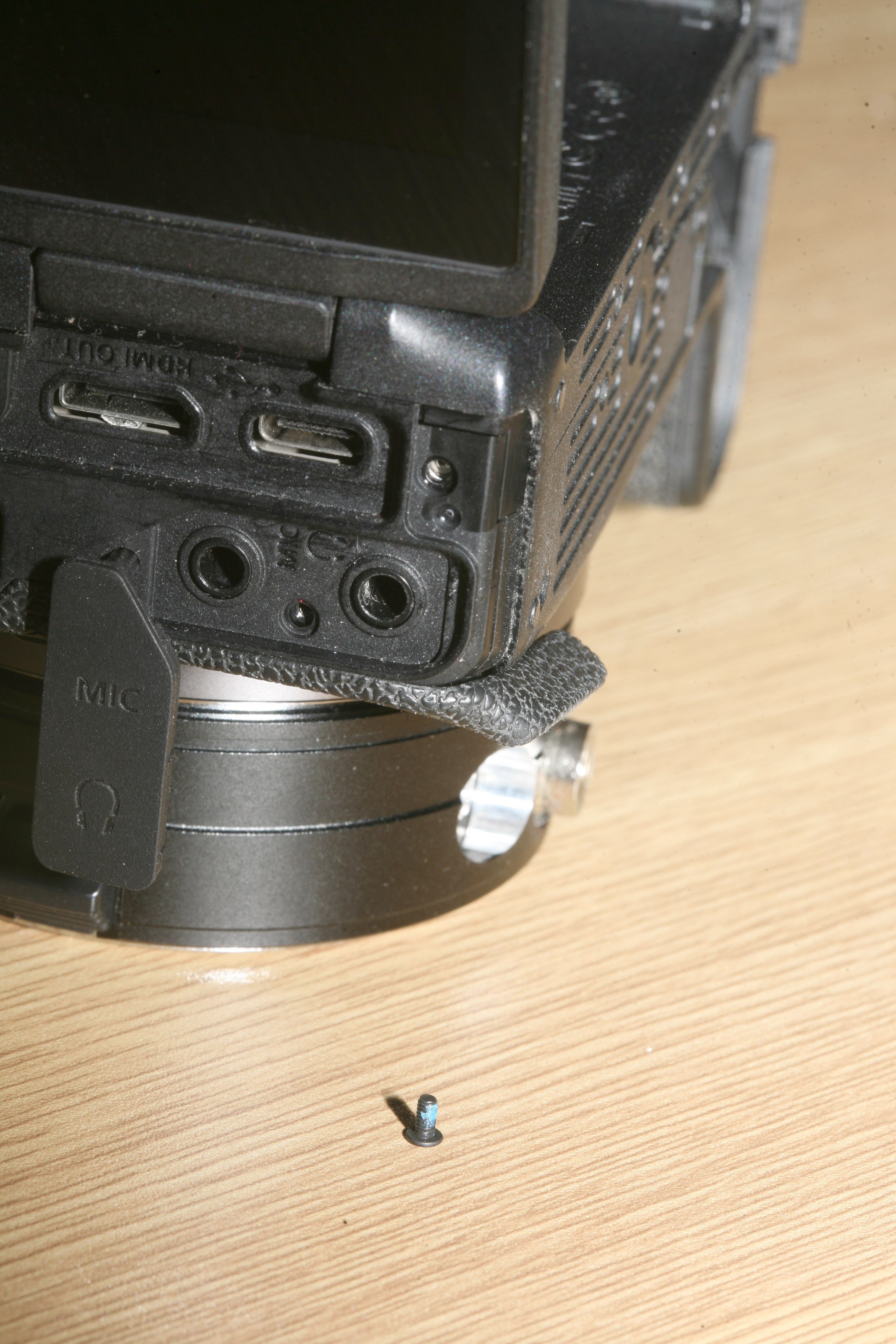
1 screw is under the left rubber. Only the corner has to be removed.
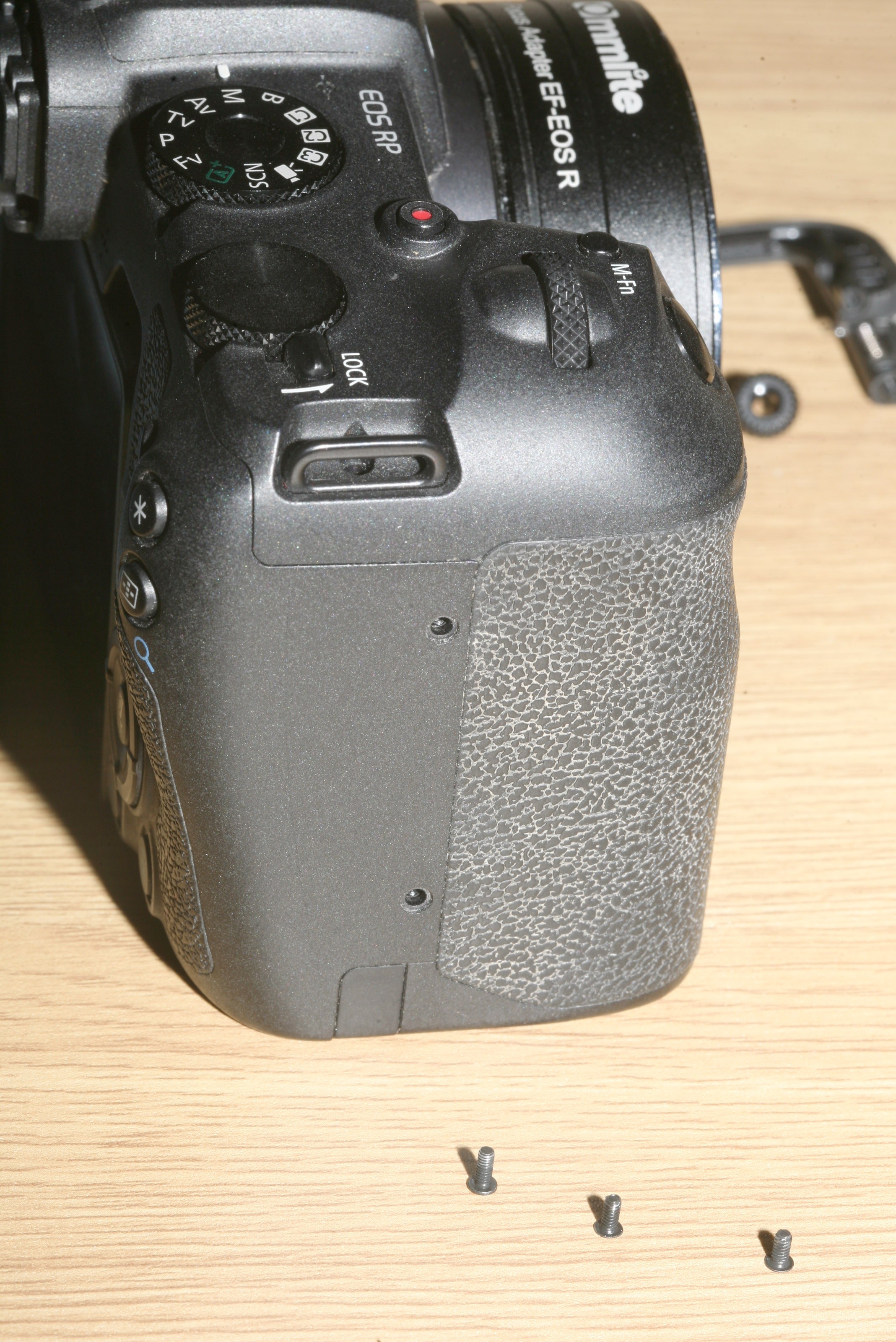
3 on the right. The right rubber doesn't have to be removed.
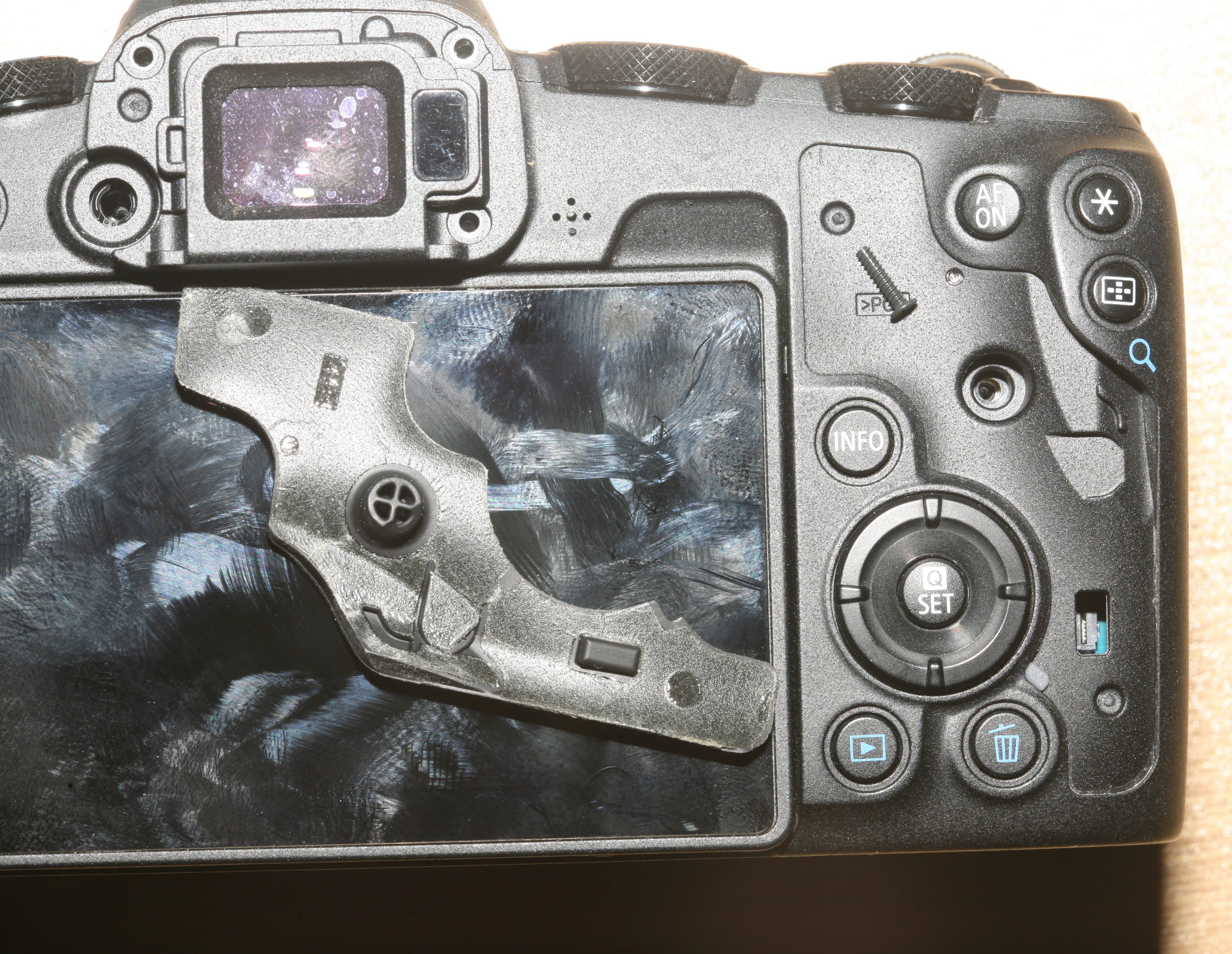
The rear rubber is the only one which has to be removed to get 1 screw. The lion kingdom will be leaving that screw out so the rubber doesn't have to be removed again.
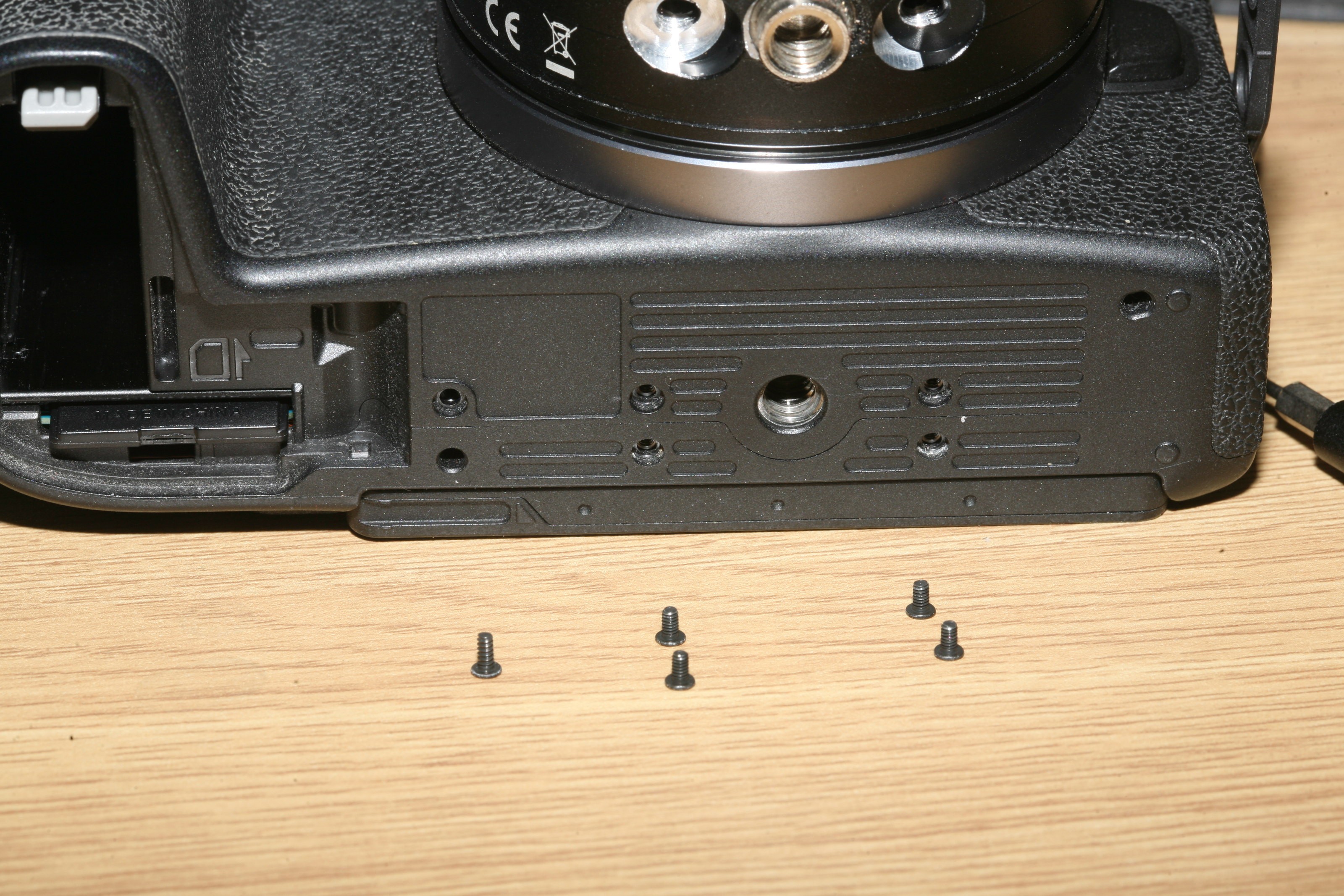
5 on the bottom.
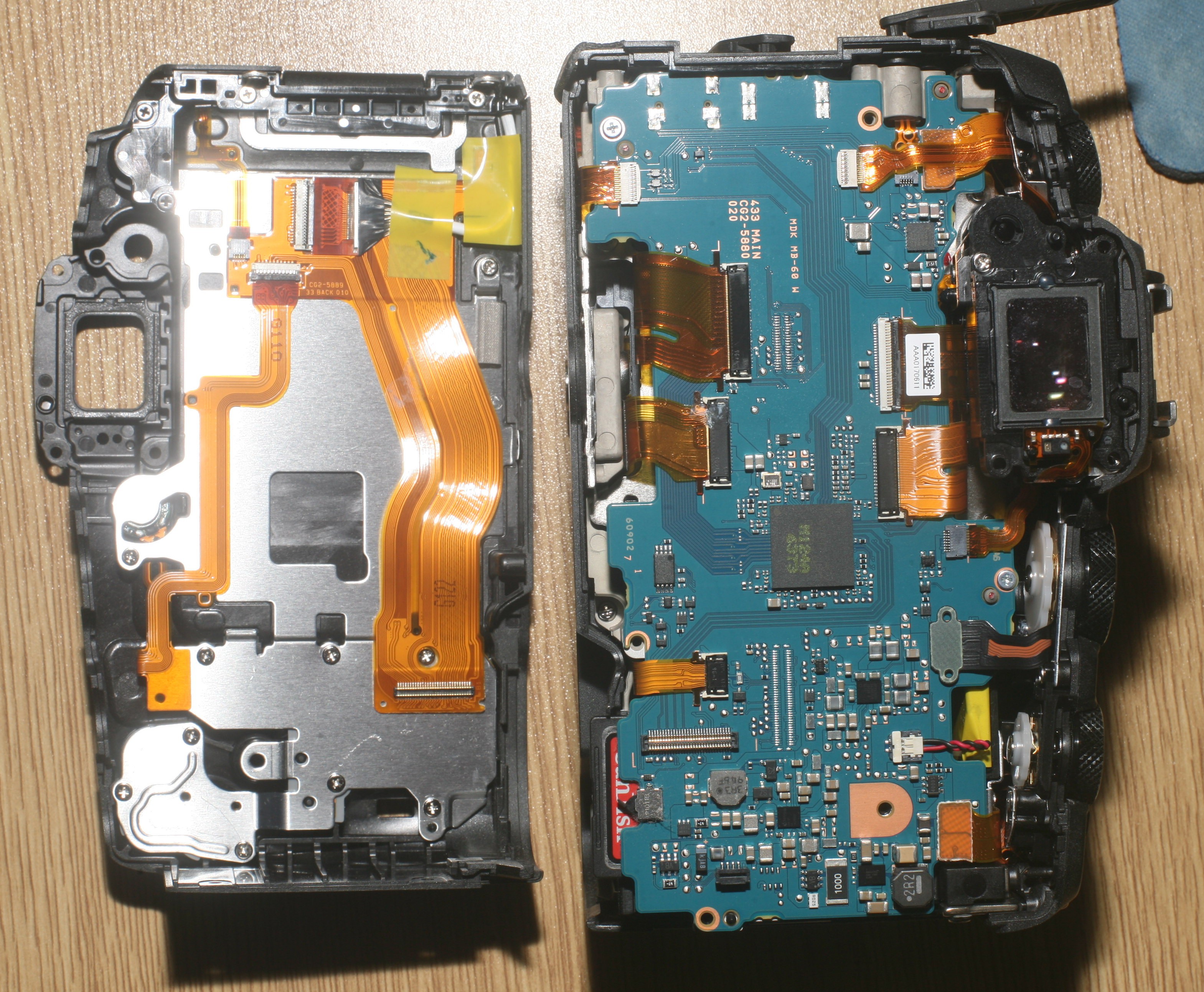
1 ribbon cable connects the back to the front.
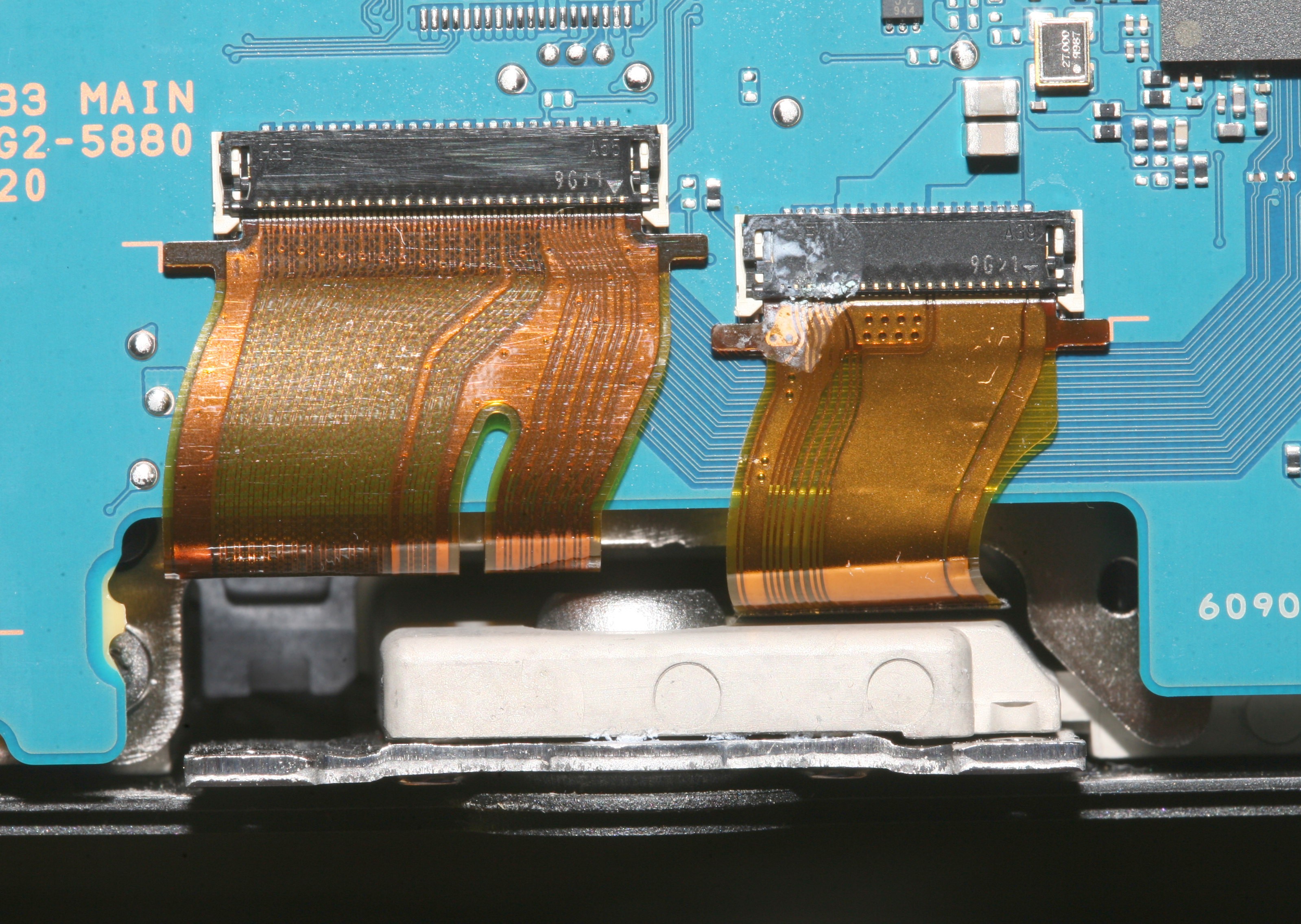
Water entered the tripod hole & got on the lens connector, just mm away from the sensor connector.
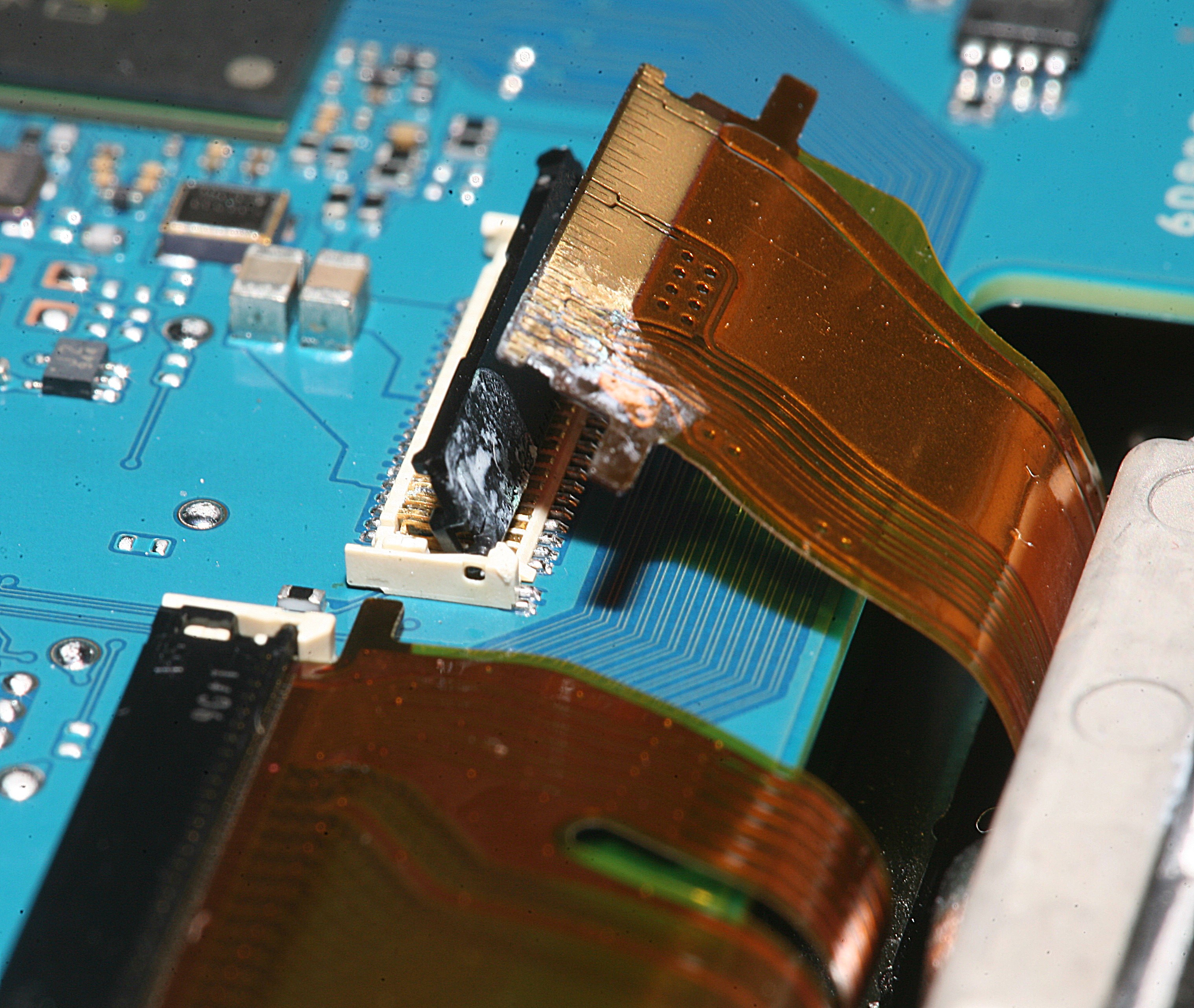
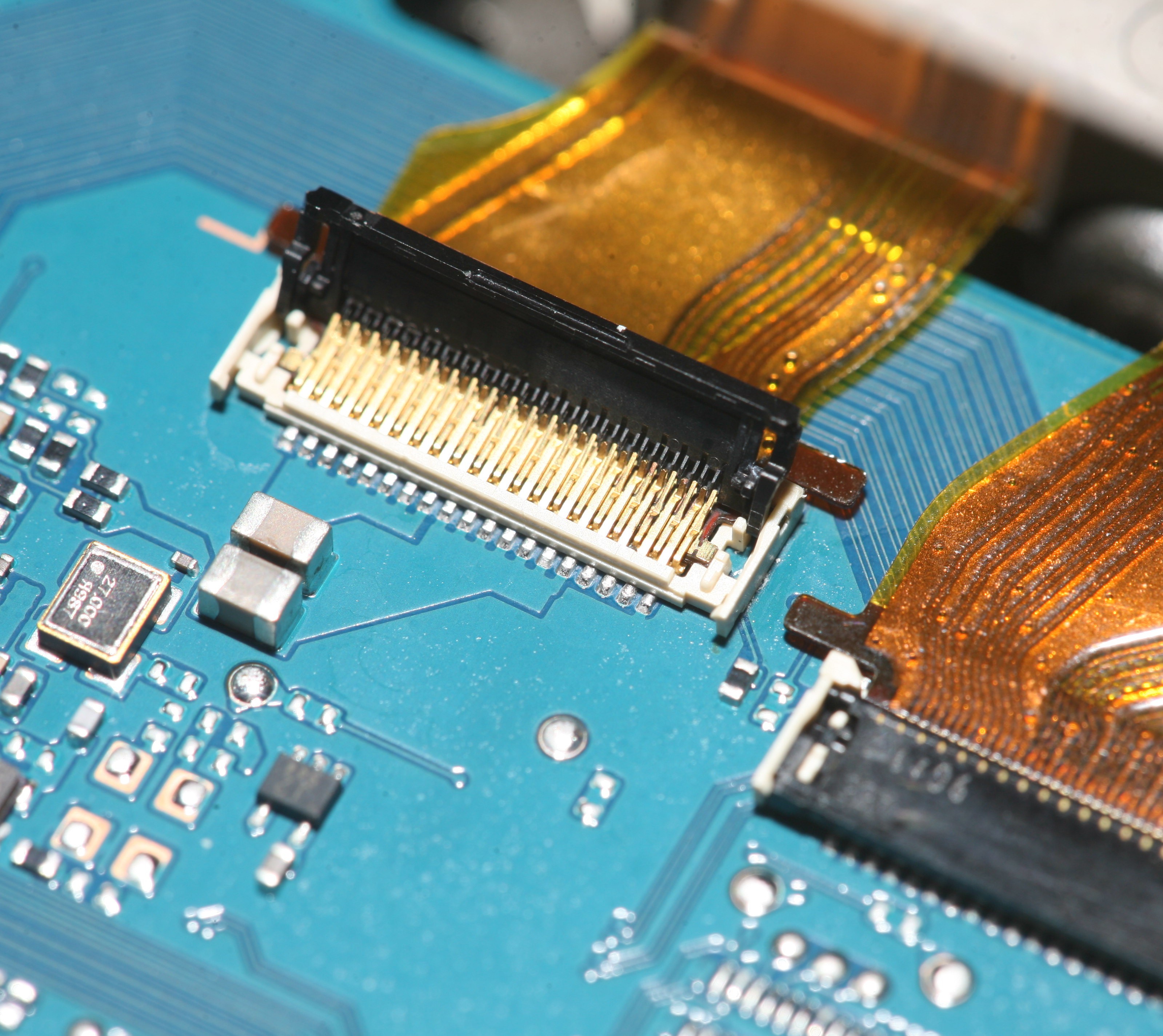
The connector seems to have survived but
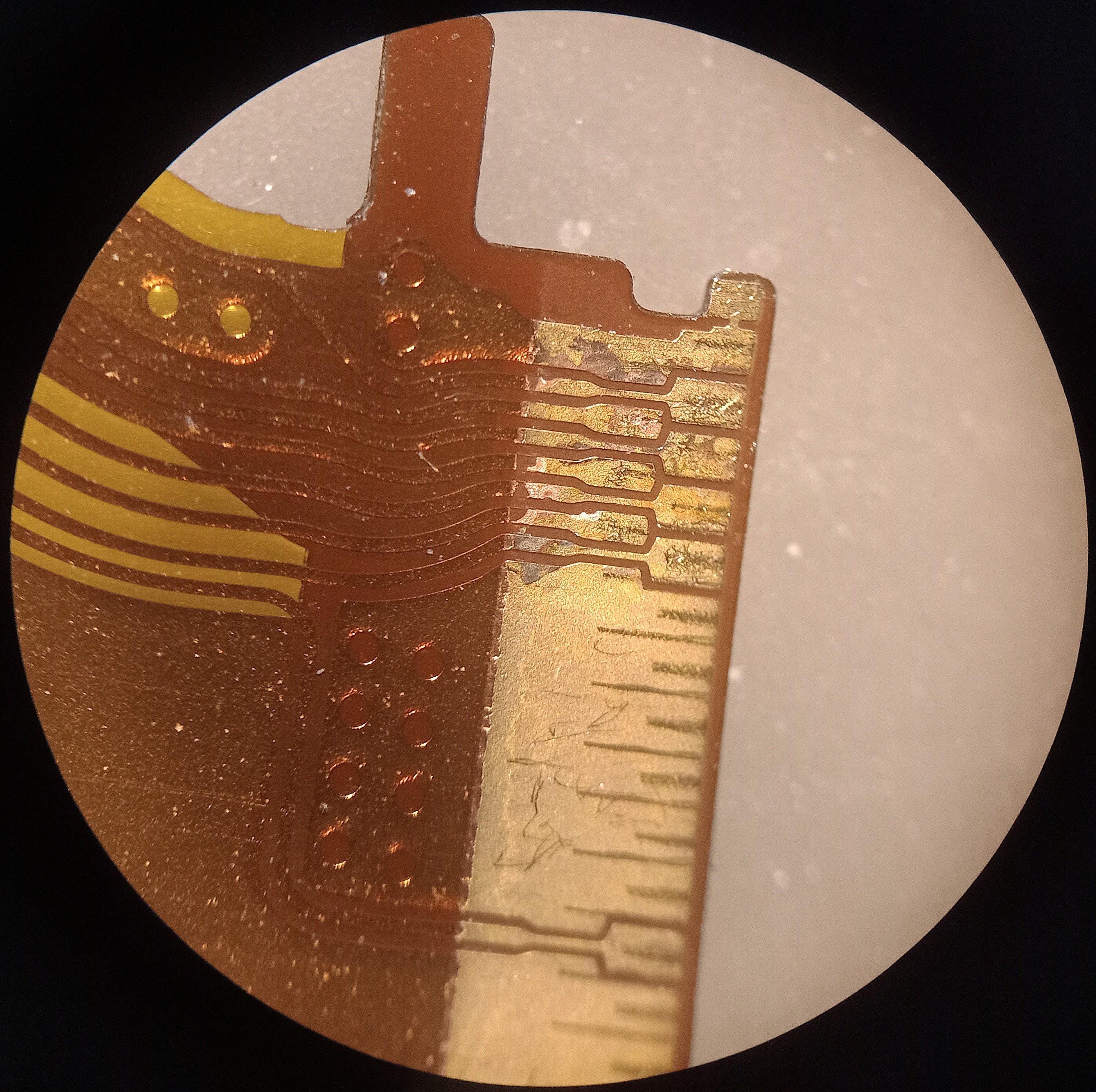
the ribbon cable from the lens to the mane board got corroded & 4 traces were gone.
The good news is custom flat flex PCB's can be made for a reasonable cost, but replicating the dimensions will be hard. Maybe the camera could have been opened & dried out before it corroded, but it was a lot of work. Lions can't do that every time it gets wet. The sensor cable would have been hard to replace.
There's no weather sealing of any kind. Even the $400 T4I had better weather resistance.
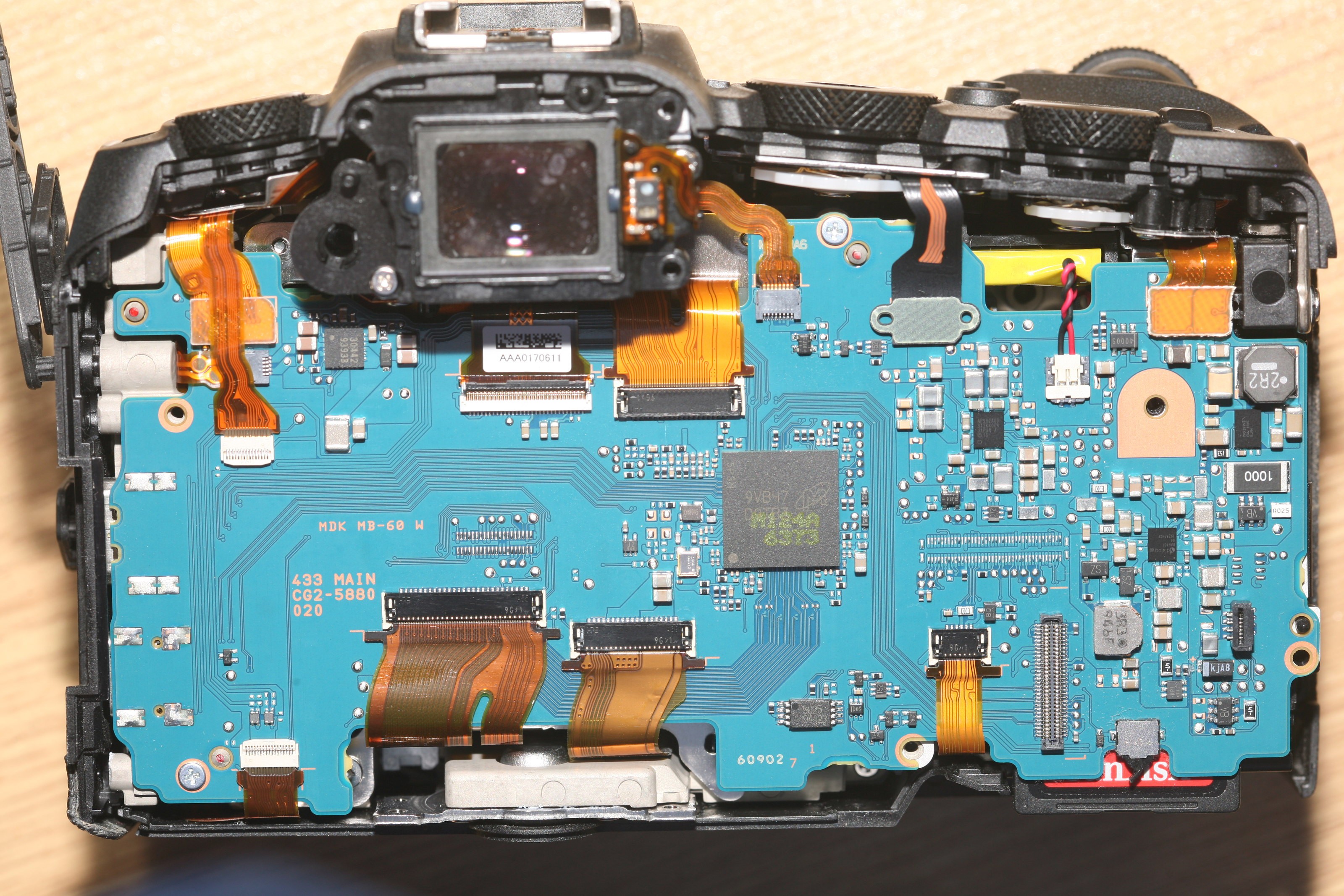
The mane board after cleaning.
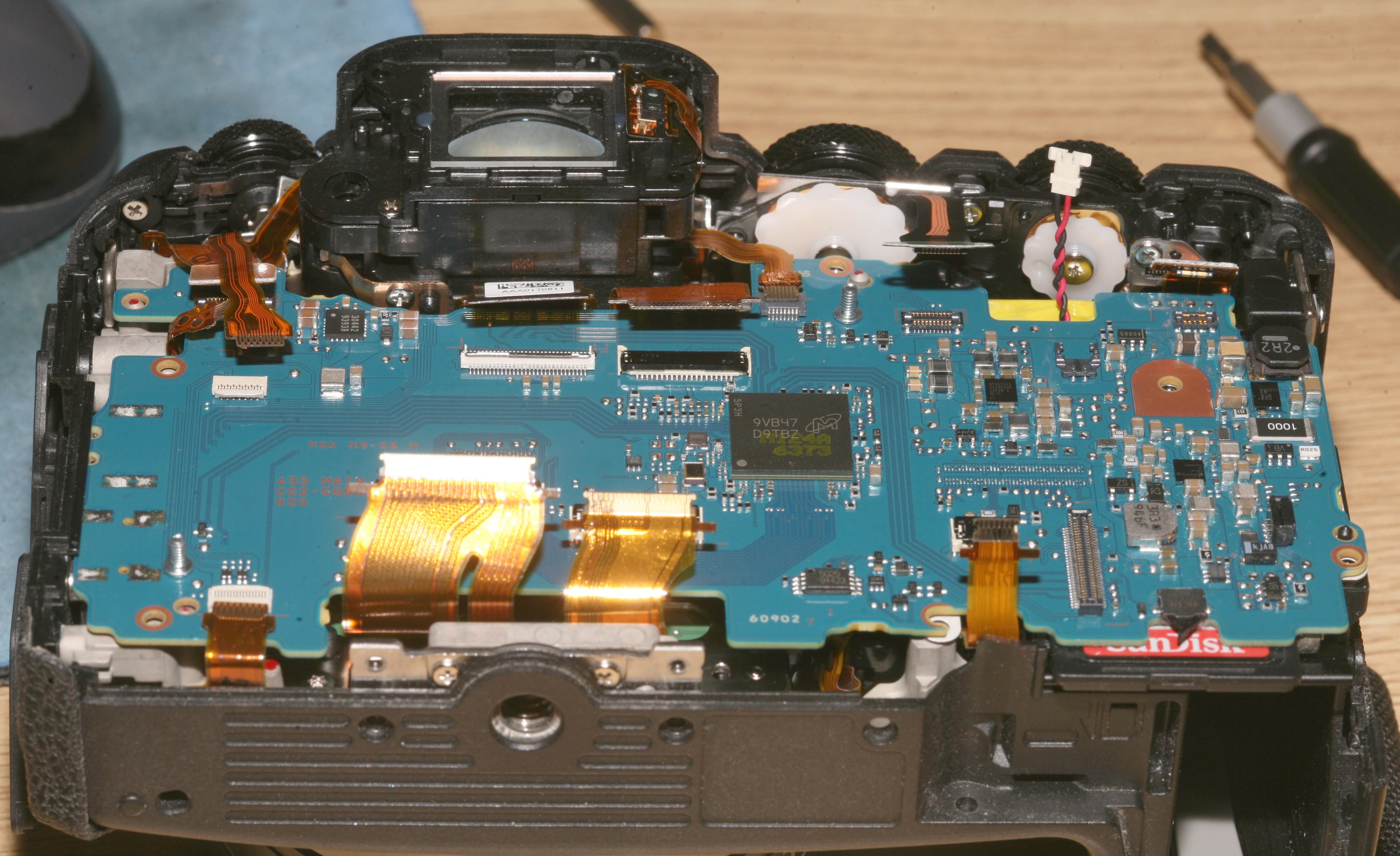
Extracting the lens cable begins by popping all the connectors & 2 screws holding the board in.
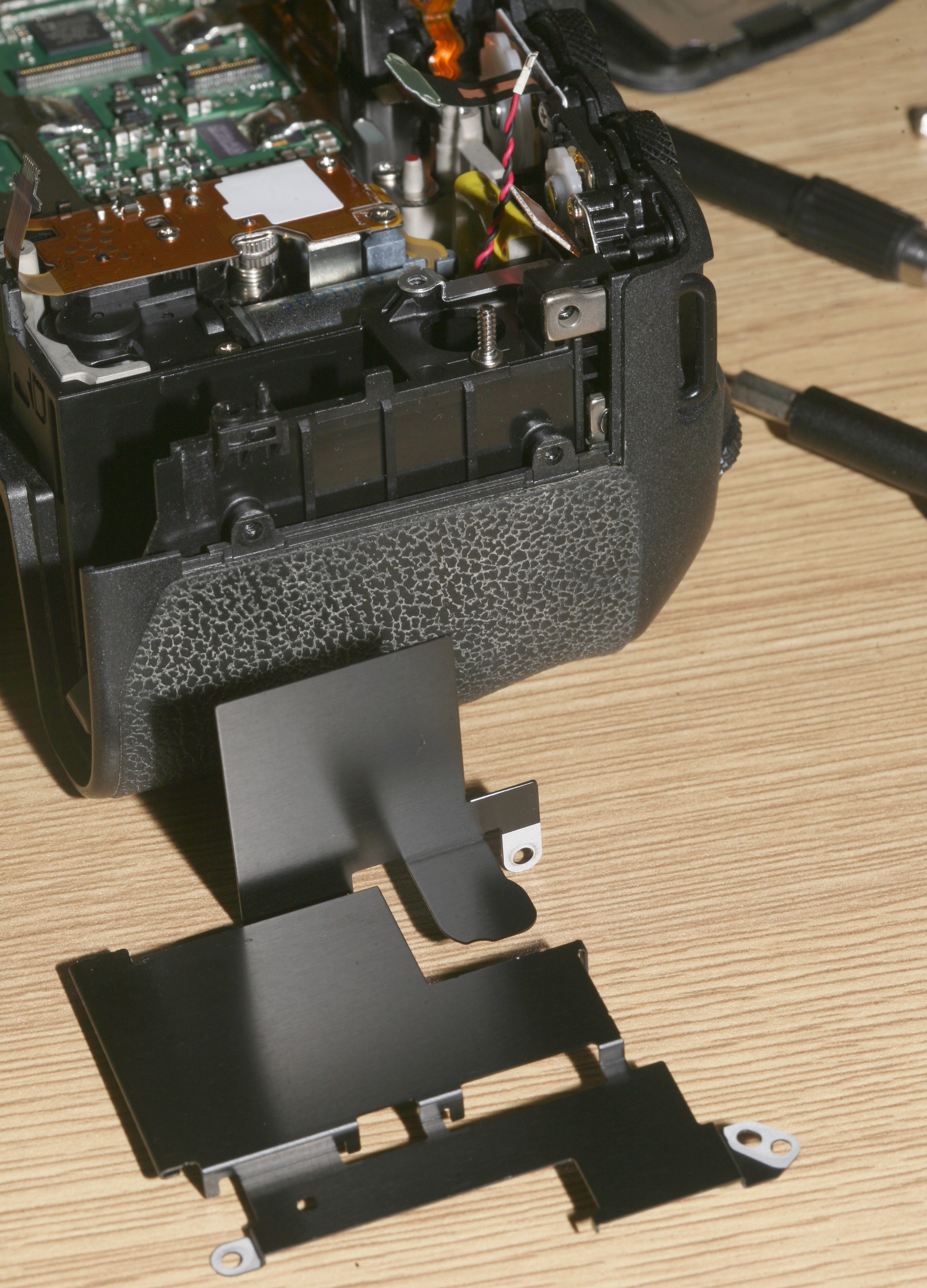 Battery shield comes off.
Battery shield comes off.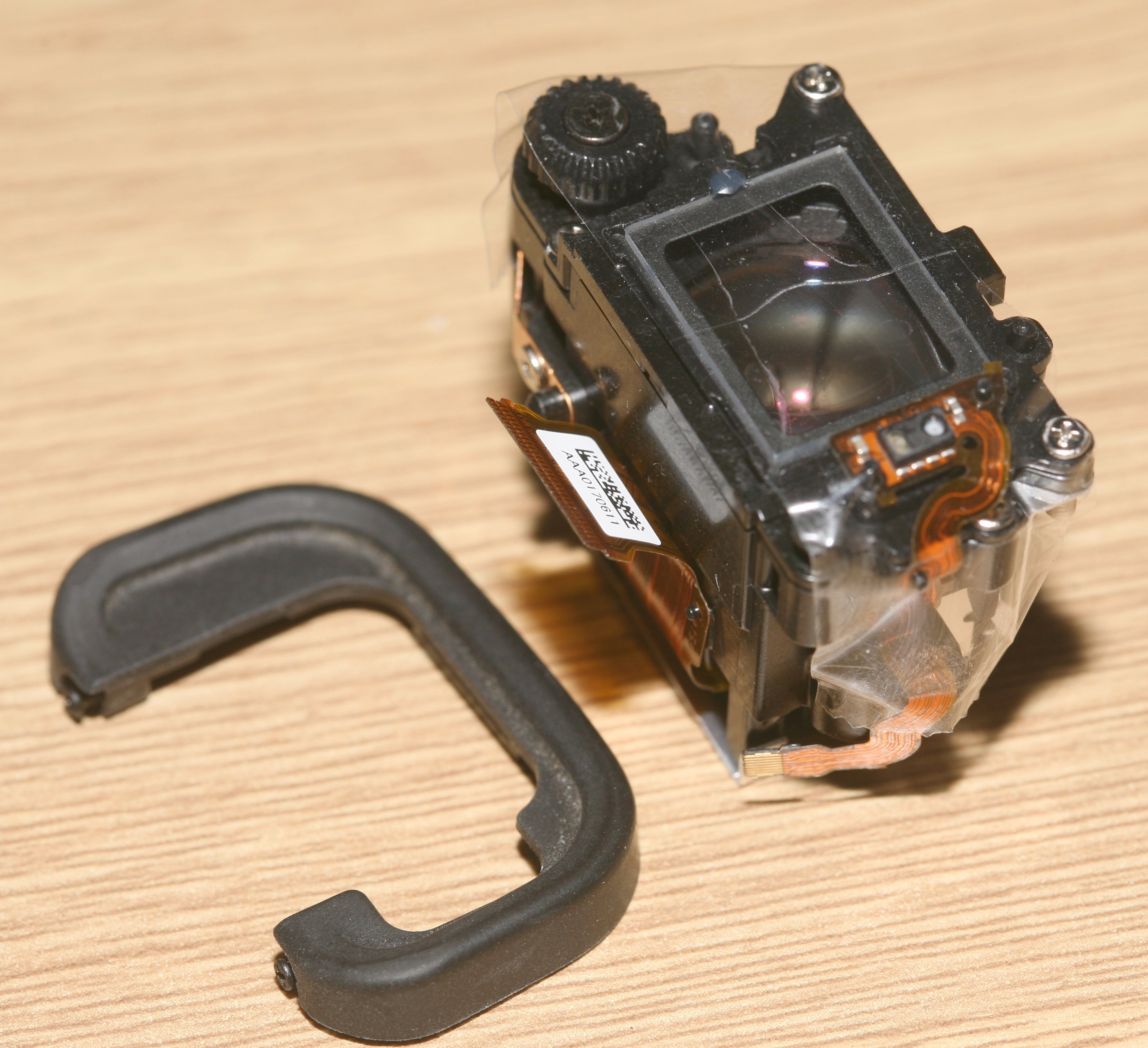
Viewfinder is permanently retired. Of course, this means setting the menus to never use the viewfinder. Accidentally reset the menus to viewfinder mode & you'll need the viewfinder again.
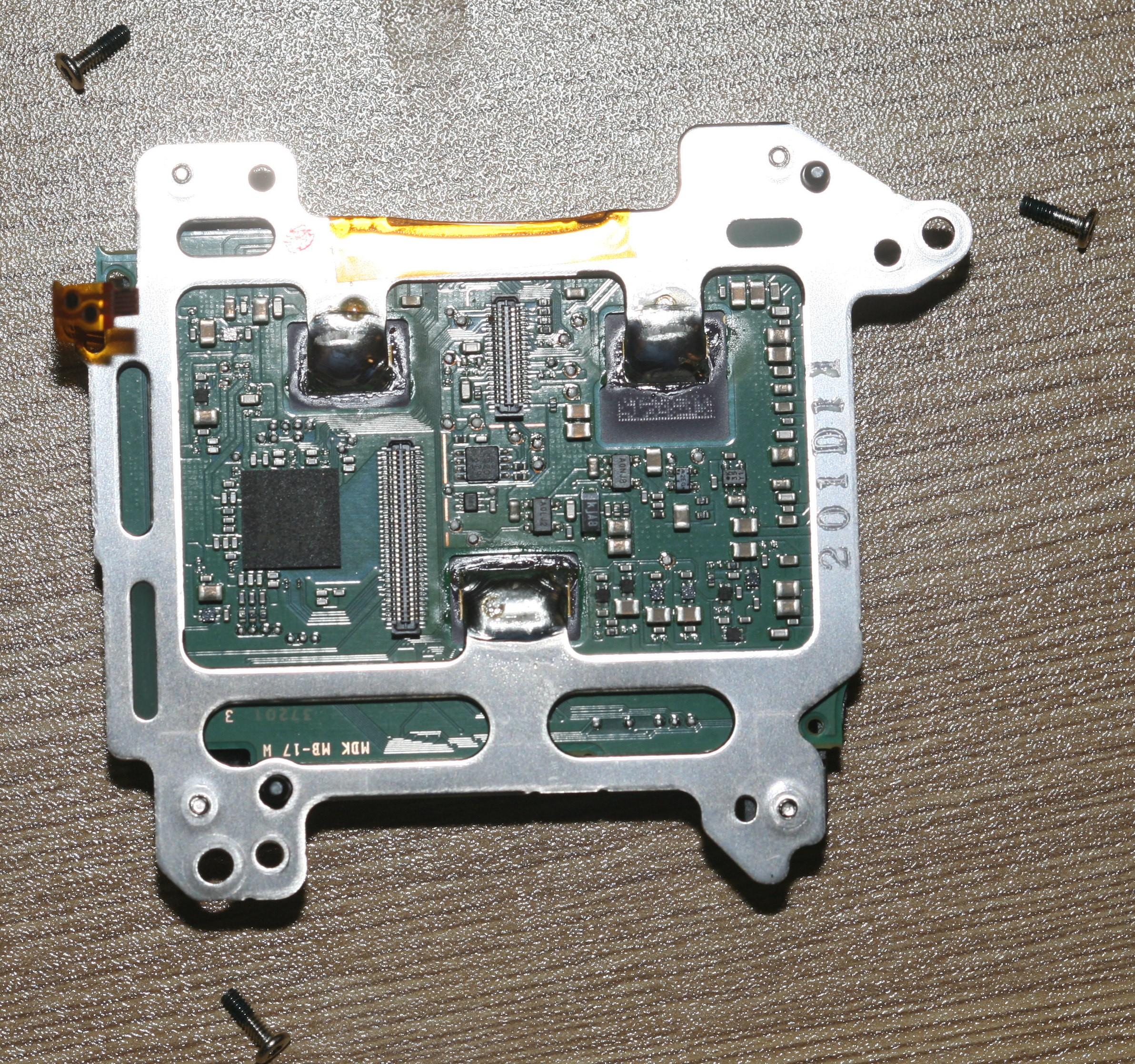
Sensor comes off. That's $998. The rest of the camera is $1.99.
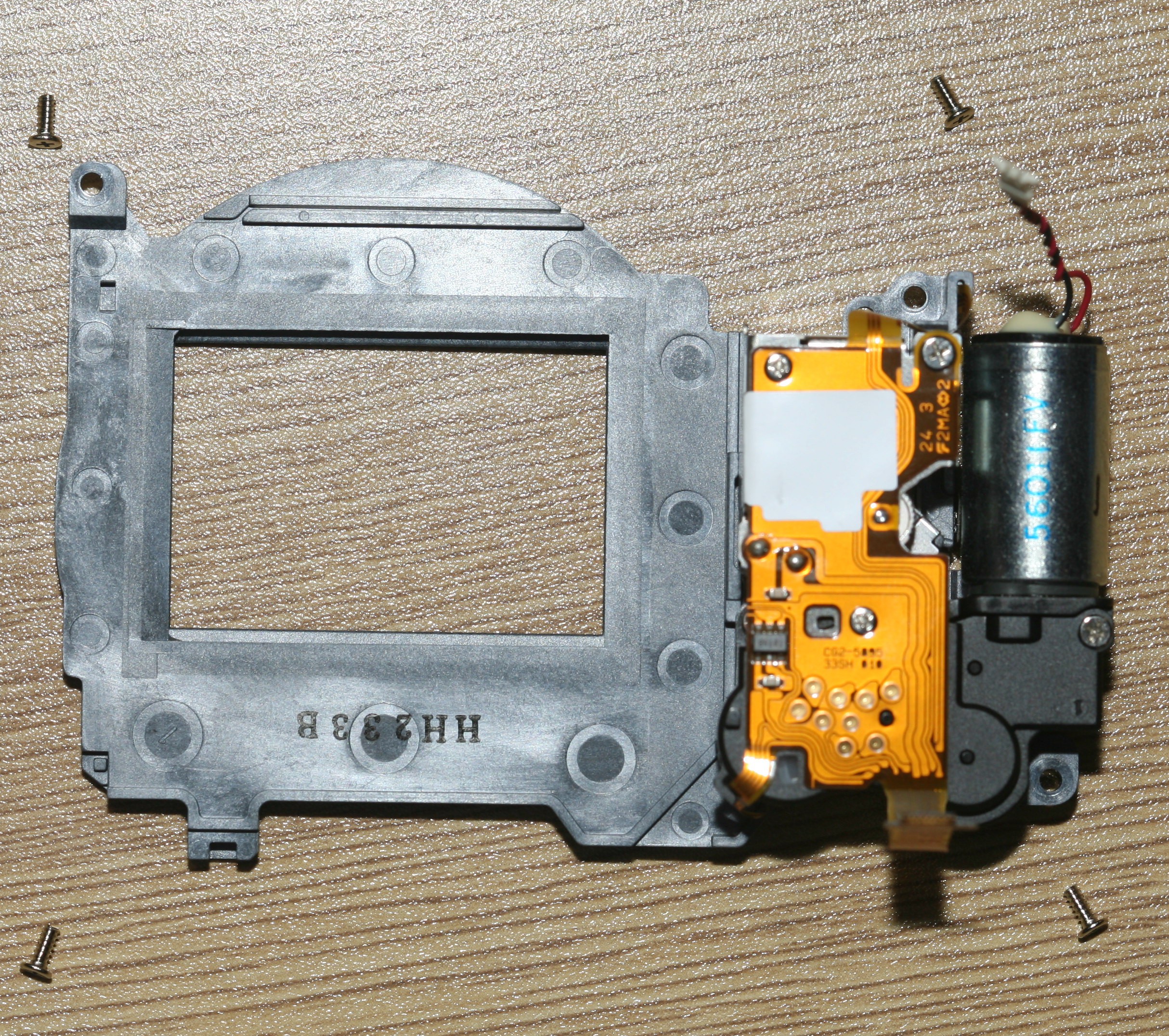 Shutter comes off.
Shutter comes off.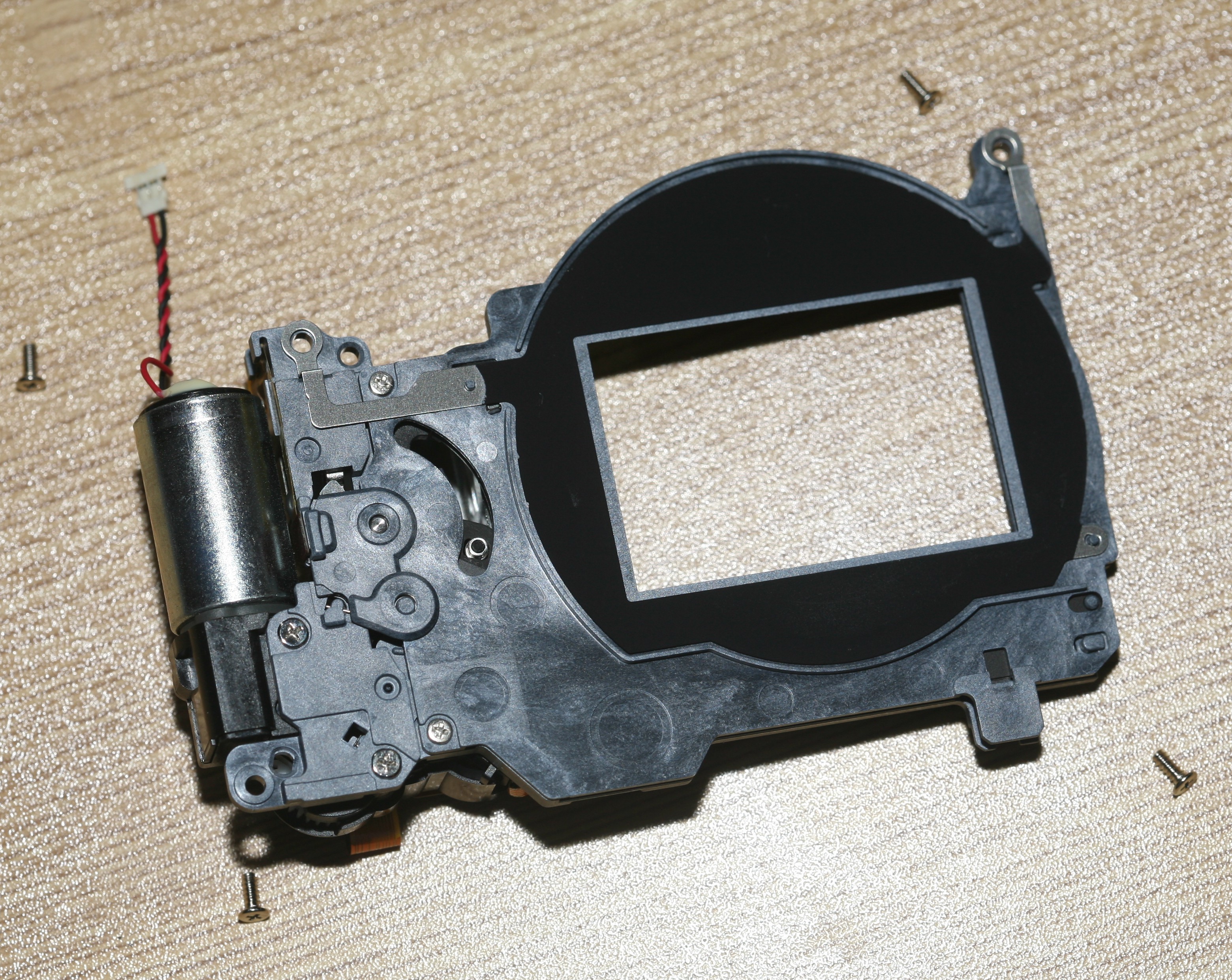
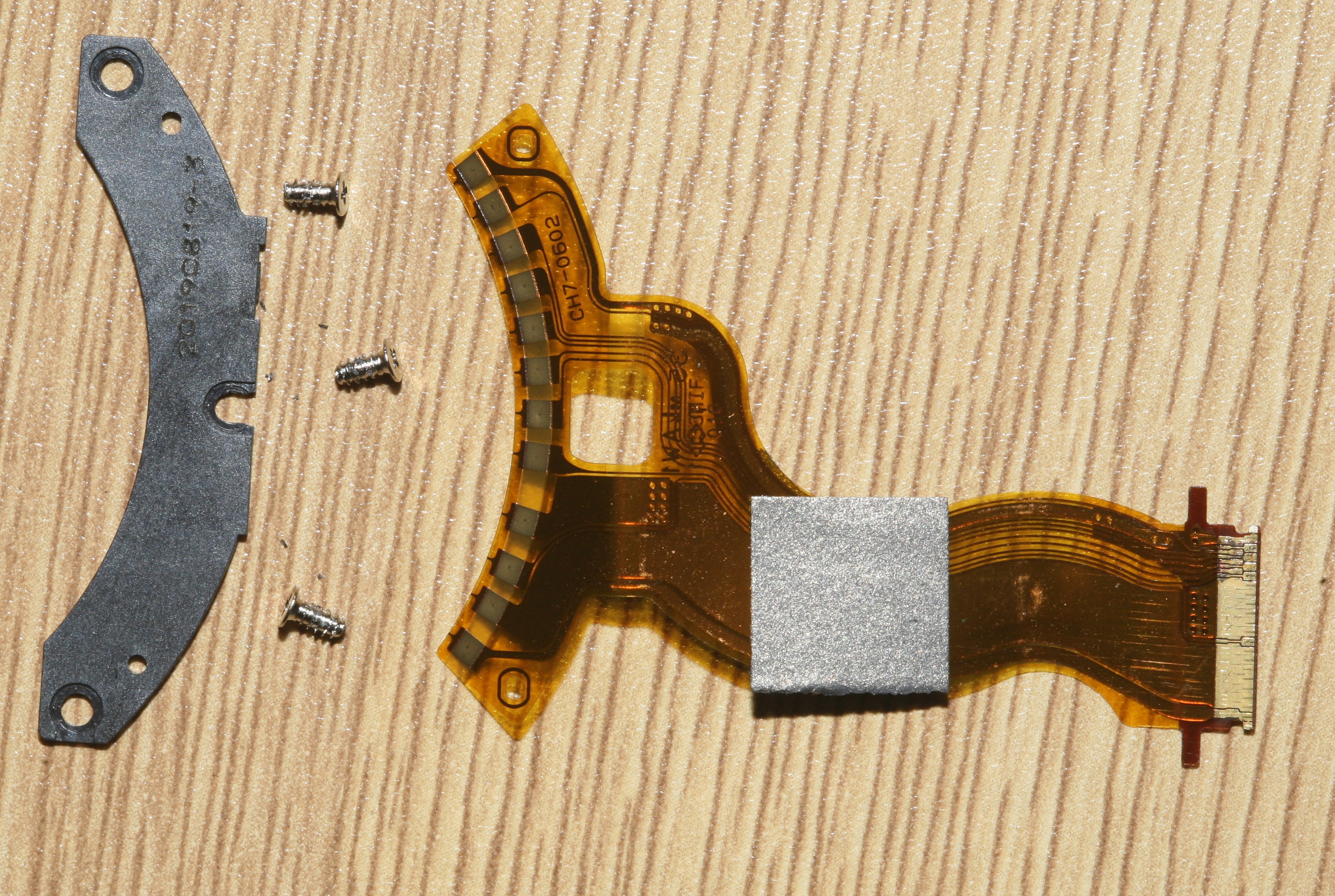
Lens cable comes off. In a very optimistic scenario, you could solder wrapping wire from the 4 floating pogo pads directly to the solder joints of the ZIF connector. The mane board would no longer be easily removable but it would probably work for the rest of the camera's lifetime or until someone else started making ribbon cable replacements.
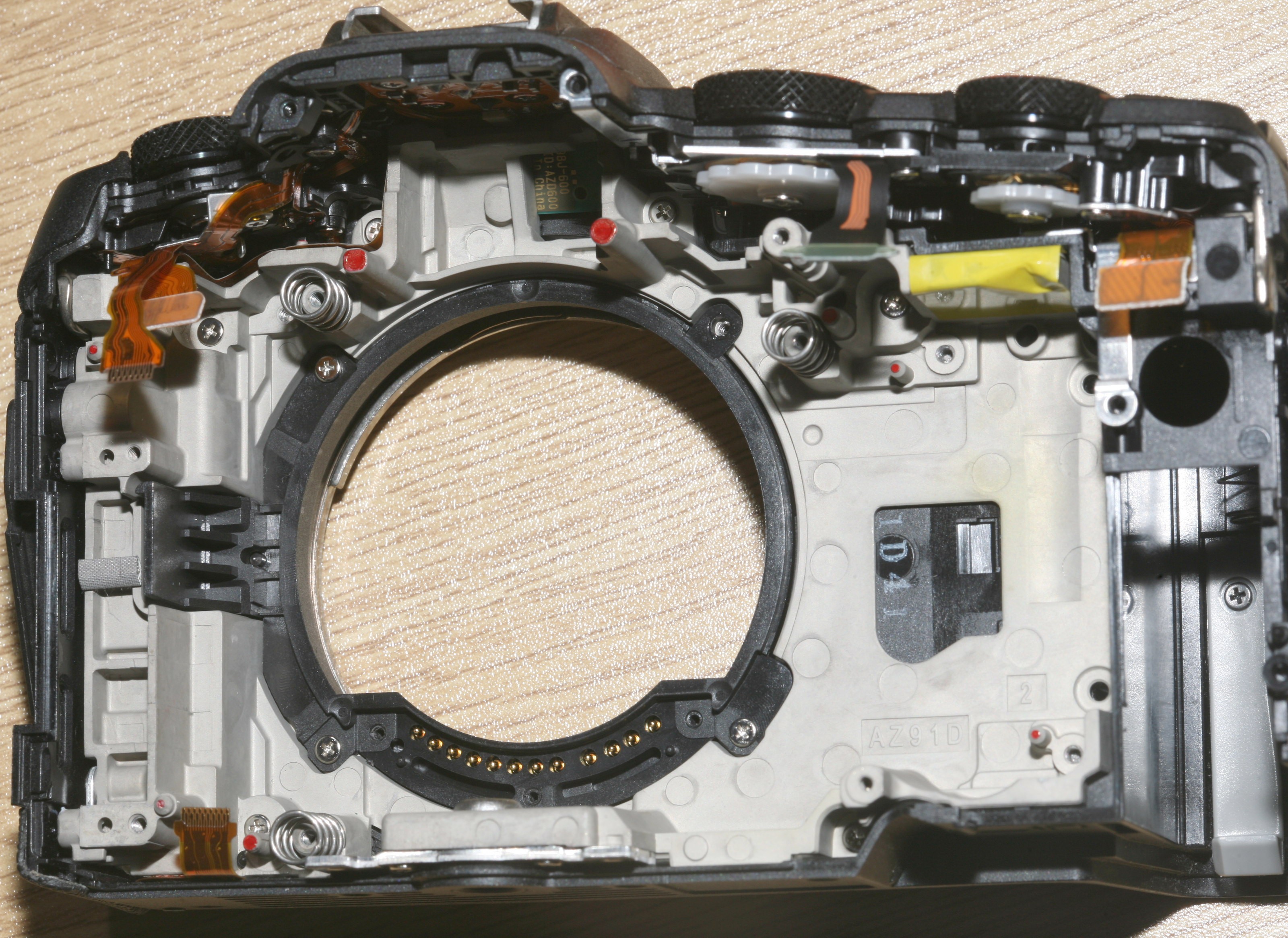
It's screwed into the back. It has 12 pogo pins. Weather sealing on top isn't very optimistic. The next task is replicating the ribbon cable in a CAD file.
 lion mclionhead
lion mclionhead
Discussions
Become a Hackaday.io Member
Create an account to leave a comment. Already have an account? Log In.